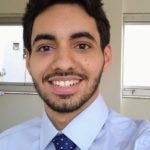

DEMPSTER GROUP
Prof. Dr. Claudio Augusto Oller do Nascimento
Chemical Engineer from University of São Paulo (1975), Master’s degree in Chemical Engineering – Department of Chemical Engineering, Polytechnic School of the University of São Paulo (1979) and a Ph.D. in Chemical Engineering – University of Salford (1982). He is currently a full professor at the University of São Paulo. He has experience in Chemical Engineering, with emphasis on Industrial Processes of Chemical Engineering, working mainly on the following topics: neural networks, mathematical modeling, water treatment, photochemical processes, and biotechnology. (Lattes)

Dr. Maria Anita Mendes
She has a quite strong background in mass spectrometry (EI, CI, ESI, MALDI ionization methods and Quadrupole, TOF, TOF/TOF and IT-TOF mass analyzers). She has relevant work experience on HPLC, LC-MS and LC-MS/MS. In the last nine years she has been working as scientific researcher at the University of São Paulo (USP), responsible for the Dempster mass spectrometry laboratory. My main research projects are related to structural determination of unknown compounds present in environmental samples, samples of oil, and also the identification of microorganisms by MALDI new technique Biotyper. She has developed projects on Proteomics and Metabolomics field as well. (Lattes)
Dr. Meriellen Dias
Chemical Engineer from Aracruz College – ES (2010), Master in Physical and Chemical Sciences at Escola Politécnica – USP (2013) acting in degradation of pharmaceutical effluents by photo-oxidative processes. She has experience in High-Performance Liquid Chromatography, Semi-Preparative Chromatography. Currently she is a post-doctoral in the Engineering Department of the Polytechnic School in the project for the Recovery of Contaminated Areas and Mineral and Reject Extraction in partnership with VALE / BNDES with emphasis on Filamentous Fungus Proteomics by Mass Spectrometry (nanoLC-ESI-Q-TOF), Metabolome (GC-MS) and identification of microorganisms by MALDI-Biotyper. (Lattes)
Dr. Enrique Eduardo Rozas Sanches
Undergraduated degree in marine science from the Catholic University of the North, Chile (1995), Doctor in Science (Physiology) from São Paulo University and 3 times Post-Doctor from the same university (2010, 2012, 2015). Expert in Pharmacology, biochemical and microbiology, initially, searching for intracellular responses of neuroblastoma cells tumor induced by marine alga substances. After established the field search in pharmacological activities of marine microorganism sponge associated, he enlarged his focus, searching for bacteria associated to continental Amazonic sponge. These work searched for immunosuppressive compounds and its application in interface biotechnology. In this way, electronic waste bioleaching process using bacteria sponge associated was development to transform the leached copper to copper nanoparticles. Actually, has started to search the proteic continuous motors concept to H2 accumulation as biogenic energy. (Lattes)
Dr. Monira Samaan Kallás
Bachelor’s degree in Odontology from UNIP (1997), specialization (2004), Master’s degree (2009) in Social Odontology from FOUSP and Habilitation in Hospital Odontology from the Federal Council of Odontology (2016). She has been a dentist of “Grupo Mais” since 2008, where she works with assistance and research in oral care in long-stay and palliative patients. PhD in the Health Sciences program of the Research Institute of the Sírio Libanês Hospital since 2014, where she developed research lines for oral health in the ICU:
Research Project 1: Evaluation of oral changes and oral flora modification in patients admitted to the Intensive Care Unit of the Hospital Sírio Libanês (microbiological evaluation of saliva and dental / prosthetic biofilm of patients on days 1, 4 and 8 of hospitalization through MALDI and metabolome).
Research Project 2: Alteration of oral flora in a hospice before and after the institution of an oral decontamination protocol. (Microbiological evaluation of saliva and biofilm before and after the institution of an oral hygiene protocol, through MALDI and metabolome). (Lattes)

Silas Perdigão Cota de Almeida
Dissertation entitled: Characterization of the metabolomic and secretomic profile using mass spectrometry technique of Aspergillus niger IOC 4687 fungus submitted to stress by copper sulfate
Graduated in Chemical Engineering from Universidade Estadual do Amapá (2017). He is currently a Master’s student at Chemical Engineering – Department of Chemical Engineering, Escola Politécnica da USP. He has experience with Analytical Chemistry of electrokinetic characterization and optimization of water treatment (CI) processes. In his master’s degree, he develops researches in Metabolomic and Secretomic of filamentous fungi under metal stress toxic for the bioremediation of mining tailings containing copper using the mass spectrometry technique (GC-MS).

Dr. Lidiane Maria de Andrade
Bachelor’s degree in Chemistry with Technologic Skills (2004) and Master’s Degree in Physics and Chemistry, both from the São Carlos Institute of Chemistry – University of São Paulo – USP (2007) acting in the following topics: ethanol steam reforming, hydrogen production, catalysis, HDT – HDS and HDN reactions, mass spectrometry. During 2.5 years she was a member of the research team of the Laboratory of Alternative Technologies for Refining – LABTAR / CQMA / IPEN – in the Project entitled Heavy Oil Processing by Microwave Technology, financed by PETROBRÁS. PhD from the Department of Chemical Engineering of the Polytechnic School of the University of São Paulo in the area of Production of microalgae and characterization of their composition by mass spectrometry (MALDI-TOF) with a split PhD (6 months) at Bruker Daltonics (Billerica- USA). She has been working as a Scientific Researcher at the Department of Chemical Engineering of the Polytechnic School of the University of São Paulo in the project of Recovery of Contaminated Areas and Mineral and Reject Extraction in partnership with VALE / BNDES, emphasizing on microalgae lipid analysis (GC-MS), microalgae proteomics (NanoLC-ESI-Q-TOF), identification of microorganisms by MALDI-Biotyper. (Lattes)
Copyright © 2025 DEMPSTER Mass Lab | Produzido por SCS - Mídias Online





